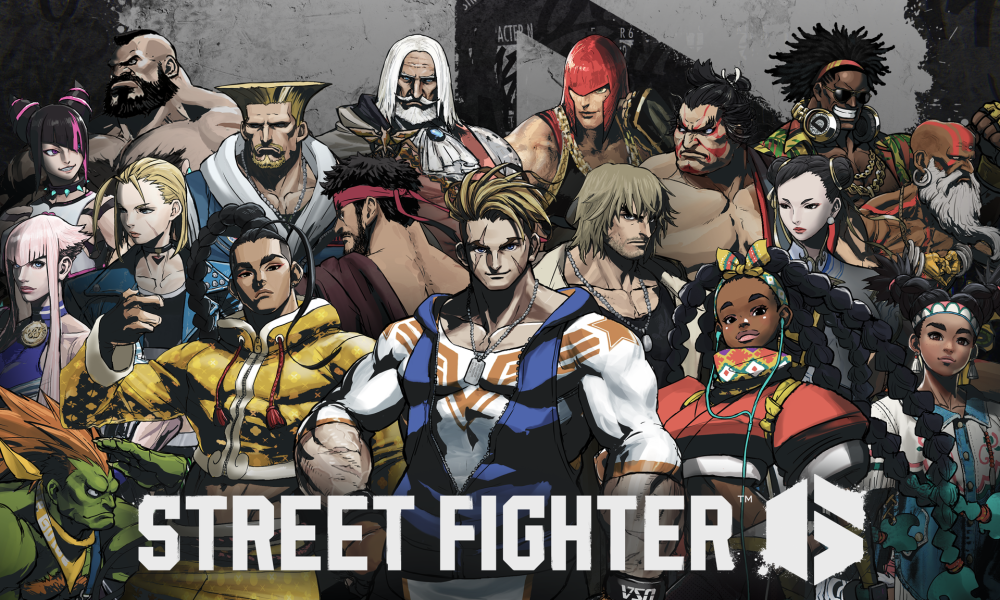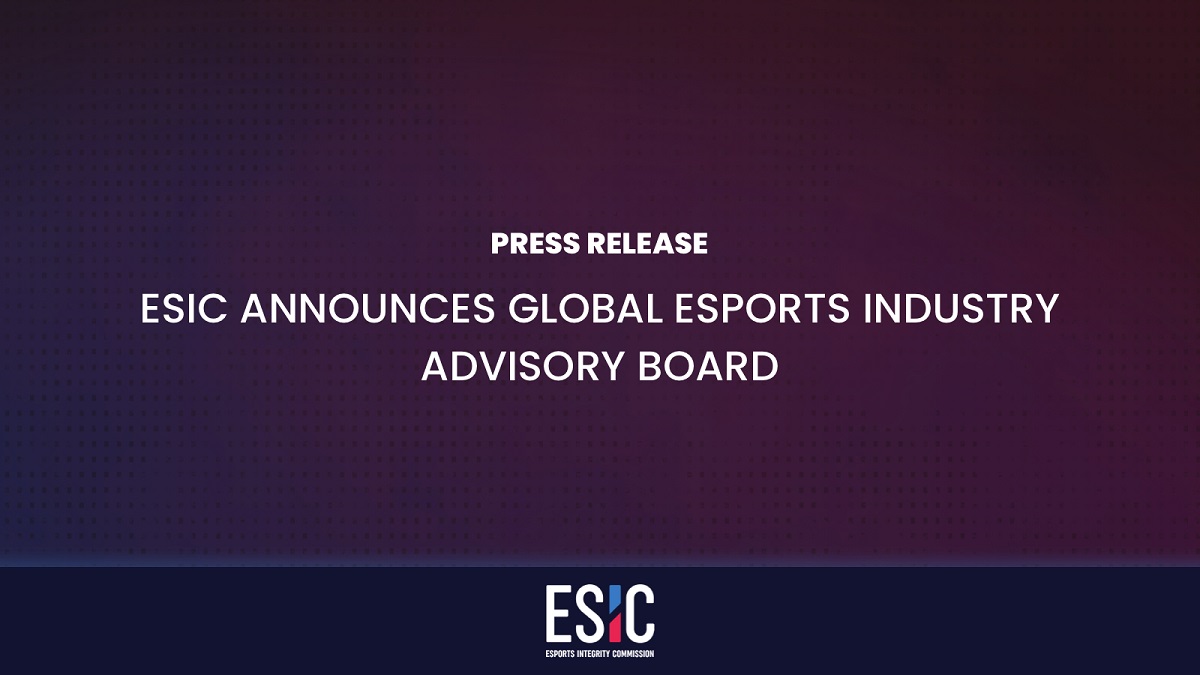

eSports
6 Highest-Paying Esports Games Of 2020 So Far
Despite the world grinding to a halt, esports continues to thrive.
In 2019, global revenue from esports topped $1billion and with the popularity of competitive increasing, gamers and sponsors continue to see the benefits.
But, what about during a pandemic?
Though many big tournaments have been cancelled, the gaming goes on at home and viewing figures are rising each month.
New research from esports betting company Unikrn has revealed the biggest esports of 2020 so far by prize money won**.
1. DOTA 2
Prize money (2020): $6,000,000
Tournaments: 54
Average prize: $111,111
Prize money (all-time): $224,300,000
The highest-paid game in esports continues to lead the way when it comes to prize money in 2020.
Last year, the game offloaded $52million in prize money with The International 2019 contributing to $34.3million of that.
Winning team OG picked up $15.6million between their five members, each taking home more than Tiger Woods at the 2019 Masters ($2.07million)
2. CS:GO
Prize money (2020): $4,900,000
Tournaments: 96
Average prize: $51,042
Prize money (all-time): $96,200,000
The most active game in 2020, CS:GO has had tournaments going out almost every week.
Since the start of the year, the average number of Twitch viewers watching streamers and matches has almost tripled from 45,000 viewers in January to 120,000 viewers in April.
3. Rainbow Six Siege
Prize money (2020): $4,000,000
Tournaments: 18
Average prize: $222,222
Prize money (all-time): $12,100,000
This year’s Six Invitational 2020 in February saw a $3million prize pot, higher than any previous year.
Despite being released in 2015, Rainbow Six Siege’s popularity continues to grow.
As of this month, the game has surpassed 60 millions players worldwide.
4. League of Legends
Prize money (2020): $2,900,000
Tournaments: 26
Average prize: $111,538
Prize money (all-time): $75,600,000
The real-time strategy game developed by Riot Games is the fourth highest-paying game in history with over $75million in prize money.
The publisher announced last month that it was having to cancel this year’s Mid-Season Invitational (MSI), the game’s second largest international annual event.
However, fans will be excited for the start of the LPL that begins this weekend.
5. Rocket League
Prize money (2020): $1,500,000
Tournaments: 17
Average prize: $88,235
Prize money (all-time): $8,900,000
Rocket League has recently stepped into the mainstream with the BBC broadcasting the European Spring Series last month.
Previously, Season 9 of the Rocket League Championship Series (RLCS) saw almost $1million paid out across the tournament from February to April.
6. PlayerUnknown’s Battlegrounds (PUBG)
Prize money (2020): $1,500,000
Tournaments: 21
Average prize: $71,429
Prize money (all-time): $22,000,000
Another esport that has had to cancel a big tournament. In PUBG’s case, the PGS 2020 in Berlin was set to go ahead in April.
The creators have since committed to hosting four events around the world in 2020 as long as it adheres to government advice.
—————————————————————————————————————————————–
A spokesperson for Unikrn said: “Postponing The International 2020 was the responsible choice from Valve, and it is only making this event larger and more anticipated.
“In the first 24 hours, The International compendium earned $24,000,000 from fans supporting the event, putting it on pace to be the largest esports prize in history.
“This enthusiasm isn’t unique to DOTA 2. Esports are continuing to accelerate in popularity, especially during these unprecedented times.”
—————————————————————————————————————————————–
** Statistics taken from www.esportsearnings.com (does not include charitable prize money, salaries, earning reductions)
HIGHEST-PAYING ESPORTS OF 2020 (BY PRIZE MONEY)
| 2020 prize money | No. of tournaments | Average prize money | |
| Game | |||
| DOTA2 | $6,000,000 | 54 | $111,111 |
| CS:GO | $4,900,000 | 96 | $51,042 |
| Rainbow Six: Siege | $4,000,000 | 18 | $222,222 |
| League of Legends | $2,900,000 | 26 | $111,538 |
| Rocket League | $1,500,000 | 17 | $88,235 |
| PUBG | $1,500,000 | 21 | $71,429 |
| Hearthstone | $1,200,000 | 8 | $150,000 |
| Magic The Gathering | $1,100,000 | 1 | $1,100,000 |
| Call of Duty: Modern Warfare | $1,100,000 | 19 | $57,895 |
| Arena of Valor | $827,000 | 2 | $413,500 |
HIGHEST-PAYING ESPORTS OF ALL-TIME (BY PRIZE MONEY)
| Total Prize Money | 2020 prize money | No. of tournaments | Average prize money | |
| Game | ||||
| DOTA2 | $224,300,000 | $6,000,000 | 54 | $111,111 |
| CS:GO | $96,200,000 | $4,900,000 | 96 | $51,042 |
| Fortnite | $85,300,000 | $600,000 | 3 | $200,000 |
| League of Legends | $75,600,000 | $2,900,000 | 26 | $111,538 |
| Starcraft | $32,800,000 | $500,000 | 46 | $10,870 |
| PLAYERUNKNOWN | $22,000,000 | $1,500,000 | 21 | $71,429 |
| Overwatch | $21,700,000 | $12,000 | 2 | $6,000 |
| Hearthstone | $21,200,000 | $1,200,000 | 8 | $150,000 |
| Heroes of Storm | $18,100,000 | $4,000 | 1 | $4,000 |
| Arena of Valor | $14,600,000 | $827,000 | 2 | $413,500 |
Angela Bernhard Thomas
CAPCOM’S STREET FIGHTERTM 6 GOING TO COLLEGE THIS FALL

- CSMG will create and operate College Street FighterTM Tour in North America for the 2024-25 academic year
- College conference Street Fighter 6 champions will punch their ticket to the national Collegiate Esports Commissioner’s Cup (CECC) & May Madness in 2025
eSports
R&D rethink needed for sportsbooks to harness esports’ power

 Esports betting is still grappling with a perception problem amongst operators. Despite the leaps and bounds in product development made by suppliers – particularly in the last two years – esports hasn’t shaken off the image built in the late 2010s.
Esports betting is still grappling with a perception problem amongst operators. Despite the leaps and bounds in product development made by suppliers – particularly in the last two years – esports hasn’t shaken off the image built in the late 2010s.
Our good friend, Oliver Niner, Head of Sales at PandaScore, has been kind to share the below article with us.
There’s scepticism around esports betting’s value, how well it can actually perform and what’s needed to make it appeal to bettors. A big part of that comes down to perception, which shapes the research and development (R&D) choices made by each operator.
Self-fulfilling prophecy?
Operators who have put the research and development (R&D) resources into esports are seeing excellent growth, while others are still treating it like part of a long tail. The lack of a uniform approach to esports often translates into hesitancy to be bullish and invest in esports.
Whereas in the United States, post-PASPA sports betting has exploded and operators are seeking to capture as much territory and market share as possible because in most cases, you switch the lights on and the money comes in. It’s, of course, good business sense to take opportunities like this – you can apply the same templates used elsewhere on an incredibly lucrative market.
This kind of approach has been attempted for esports and hasn’t found the same success. Granted, the legislation for betting on esports has been somewhat slower than that of sports betting and iGaming.
However, bullish operators have acknowledged the fact that esports hasn’t found the same success in regulated states and asked what can be done differently, while for others, esports has been thrown into the too-hard basket or relegated to the bargain bucket.
For the latter, the fate of the esports vertical becomes a self-fulfilling prophecy – especially if an operator already using a budget esports product that throttles its very growth.
It takes two to tango
When esports is discussed in broader betting circles, you’ll often hear different versions of the same talking point: the problem with esports is no one is doing it well, it doesn’t innovate.
This argument is a case of the pot calling the kettle black. Esports is a driver of innovation, and it is sportsbook R&D that is holding it back.
Multiple suppliers on the market are investing significant resources into R&D, and bullish operators are leveraging these product innovations to acquire new customers and create engagements made for the internet age.
There are understandable reasons why sports betting doesn’t innovate. It’s largely because operators focus on acquisition, entering new territories and spending money on data rights. But the actual R&D on sportsbook products is left lacking, with ever-increasing cost-per-acquisition (CPA) numbers a clear symptom of this.
It means that if an operator does decide to use or acquire an esports specialist supplier but does little to cater its product and attempts to just lay the sports betting template over the top, of course performance will be throttled.
It’s like putting a Ferrari engine in a Prius – no offence to Toyota or Prius owners.
The same problem exists on the platform supplier front. Platforms are understandably focused on compliance and getting customers live, not necessarily improving models or their products.
Even the idea that if you just acquire an innovative company the problem is solved or you have found the solution, doesn’t hold water. In many cases, the company is acquired and plenty of noise is made about it, but there’s little organisational investment in R&D afterwards.
It’s not just in esports
These problems extend to customer acquisition and marketing for most emerging markets, not just esports. There’s a rush to use the same old playbook in newer sectors because it’s easy.
The fantasy vs. house sector in the US is already experiencing an acquisition arms race. As analyst Dustin Gouker points out, deposit match bonuses for new users on fantasy vs house products have jumped from $100 to as high as $500 in some places.
This is the same race that played out in sports betting and despite the costs, there’s little effort from most operators to try something different. There’s less work when you just put the same acquisition template on an emerging sector and call it a day. This seems to be an accepted practice in the industry, for better or for worse.
Esports betting success requires ongoing dialogue
Rather than attempting to wedge esports into hegemonic sportsbook approaches, sportsbooks need to take a completely unique approach.
The fact is the betting sector has barely scratched the surface – communities of esports fans are still dormant. Canadian operator Rivalry has built a successful, esports-first business by embracing the ever-changing internet culture that esports inhabits. French esports organisation Karmine Corp recently sold out a 30,000-person stadium for an event with no prize money up for grabs.
Innovative products developed on the supplier side like microbetting and betbuilders are only half of the equation.
Maximising esports revenues requires institutional investment, ongoing R&D and collaboration between suppliers and operators to create products and experiences. This includes having staff on the operator side that can drive and push the product further, and crucially, rethinking current sportsbook strategies and practices.
Building experiences for betting’s greatest emerging market – one that caters to your future core audience – takes investment, innovation and a willingness to experiment. If the industry wants to make the most of the Millennial and Gen Z audience that will become its primary customers, investment into R&D and close collaboration between suppliers and operators is needed. Many hands makes light work.
eSports
ESIC Announces Establishment of Global Esports Industry Advisory Board

The Esports Integrity Commission (ESIC) is pleased to announce the establishment of its Global Esports Industry Advisory Board, designed to enhance integrity and ethical practices across the esports landscape. The Advisory Board will serve a pivotal role by providing expert advice to ESIC’s Chief Executive Officer on a range of critical industry issues.
The primary function of the Advisory Board is to create a robust framework for integrity and fairness, setting a global benchmark for ethical conduct and fair competition in esports. The board will offer strategic insights, help shape policies governing fair play, liaise with key industry stakeholders, and act as ambassadors advocating for ethical practices.
ESIC has appointed two highly esteemed members to inaugurate this board:
- David Neichel, Senior Vice President of Public & International Affairs at ESL FACEIT Group (EFG), joins the Advisory Board with over fifteen years of experience in the video games industry, including significant roles at Activision-Blizzard and Electronic Arts. David’s profound impact on international and public affairs initiatives makes him an invaluable addition to the board.
- Robbie Douek, CEO of BLAST, also joins the Advisory Board, bringing a wealth of experience from his roles at Google and Disney, along with his leadership through major acquisitions. Robbie is celebrated for his strategic leadership and his instrumental role in elevating esports to a significant global entertainment platform.
The formation of the Advisory Board is an engagement that underscores the commitment of its members to upholding and promoting the highest standards of integrity within the esports industry. The board will meet as required to address strategic challenges and ensure that ESIC’s initiatives effectively meet current and future industry needs.
“Both David and Robbie bring a remarkable depth of knowledge and a passion for advancing the integrity of esports,” said Stephen Hanna, CEO of ESIC. “Their expertise will be crucial as we navigate the evolving landscape of esports and strive to maintain the integrity that our community expects and deserves.”
Robbie Douek, CEO at BLAST, said: “I’m honoured to be given the opportunity to support the Global Esports Industry Advisory Board and ESIC in their ambition to create the best and fairest environment possible for players, teams and fans.”
David Neichel, Senior Vice President of Public & International Affairs at ESL FACEIT Group (EFG) also commented: “It is a true honour to join the Global Esports Industry Advisory Board and support ESIC’s successful journey. Fairplay and integrity are at the core of esports. We owe it to the players and to the fans and for a better endemic industry governance”
The post ESIC Announces Establishment of Global Esports Industry Advisory Board appeared first on European Gaming Industry News.
-

 gaming2 years ago
gaming2 years agoODIN by 4Players: Immersive, state-of-the-art in-game audio launches into the next generation of gaming
-
EEG iGaming Directory7 years ago
iSoftBet continues to grow with new release Forest Mania
-
News6 years ago
Softbroke collaborates with Asia Live Tech for the expansion of the service line in the igaming market
-
News5 years ago
Super Bowl LIII: NFL Fans Can Bet on the #1 Sportsbook Review Site Betting-Super-Bowl.com, Providing Free Unbiased and Trusted News, Picks and Predictions
-
iGaming Industry6 years ago
Rick Meitzler appointed to the Indian Gaming Magazine Advisory Board for 2018
-
News5 years ago
REVEALED: Top eSports players set to earn $3.2 million in 2019
-
iGaming Industry6 years ago
French Senator raises Loot Boxes to France’s Gambling Regulator
-
News6 years ago
Exclusive Interview with Miklos Handa (Founder of the email marketing solutions, “MailMike.net”), speaker at Vienna International Gaming Expo 2018












